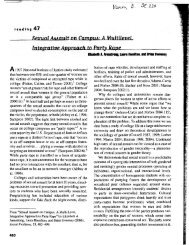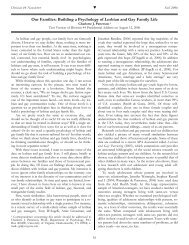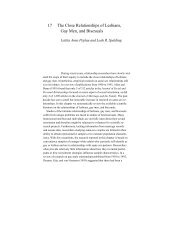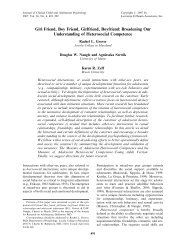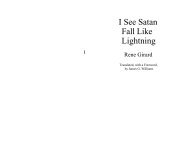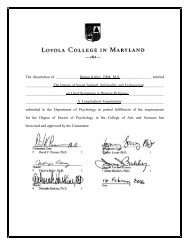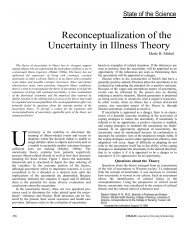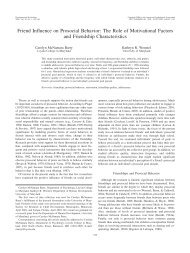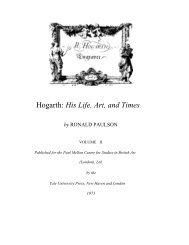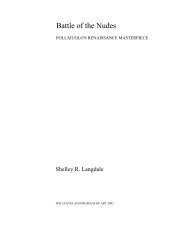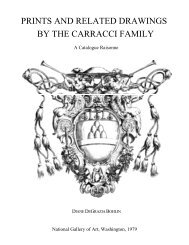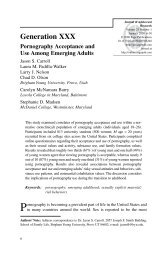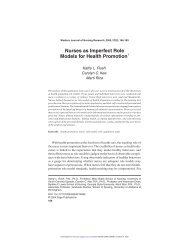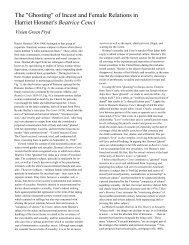The Social Explorer as Anthropologist: Victorian Travellers among ...
The Social Explorer as Anthropologist: Victorian Travellers among ...
The Social Explorer as Anthropologist: Victorian Travellers among ...
You also want an ePaper? Increase the reach of your titles
YUMPU automatically turns print PDFs into web optimized ePapers that Google loves.
iations in that behavior. He did not abandon this perspective<br />
after the first few dramatic pages, but continued to employ<br />
it throughout his analysis of the culture of the street-folk.<br />
<strong>The</strong> language of early, even primitive, anthropology pro-<br />
vided writers like Mayhew with the metaphor they needed<br />
to describe a new cl<strong>as</strong>s, the inhabitants of a new kind of<br />
neighborhood in a new kind of city. Where would the lan-<br />
guage come from to discuss with some degree of seriousness<br />
the lumpenproletariat that dwelled in the slums of the industrial<br />
cities of the nineteenth century? If a writer wished to evoke<br />
the social scene neither <strong>as</strong> a pure entertainer nor <strong>as</strong> a rigidly<br />
censorious moralizer, if he or she wished to make an attempt<br />
at "scientific" objectivity, what tone and what attitude were<br />
available and acceptable?<br />
In the 1830s and 1840s the British nation first attempted<br />
to come to terms with the facts of urban-industrial life, and<br />
a number of different methods of writing about the urban<br />
poor were or became available during these decades. Men<br />
like Peter G<strong>as</strong>kell and Edwin Chadwick used statistical studies<br />
to examine infant mortality, birth rates, sanitation, and the<br />
spread of dise<strong>as</strong>e in slums; early socialists and revolutionaries<br />
developed a critique of industrial capitalism; hidebound mor-<br />
alists preached that slum-dwellers were an inherently inferior<br />
lot and deserved their squalid fates; popular writers described<br />
the high jinks of upper-cl<strong>as</strong>s "slummers" in low-life settings;<br />
and novelists like Dickens, Disraeli, and Elizabeth G<strong>as</strong>kell<br />
used fiction to evoke sympathy for the poor and bring about<br />
reconciliation between cl<strong>as</strong>ses.<br />
<strong>Social</strong> investigators like Mayhew represented yet another<br />
tradition; Mayhew w<strong>as</strong> a reformer who wished to report in<br />
nonfictional form on the human conditions that statisticians<br />
represented numerically. He wished to impress upon his au-<br />
dience that the circumstances of slum life produced certain<br />
kinds of individuals and, by implication, to suggest that con-<br />
ditions would have to be transformed before individuals could<br />
be redeemed or "civilized." He had to convince his public<br />
that the people of whom he wrote were of English society<br />
though separate from it, related to the middle cl<strong>as</strong>s but a "race"<br />
apart from it, fellow inhabitants of the same city but members<br />
132



